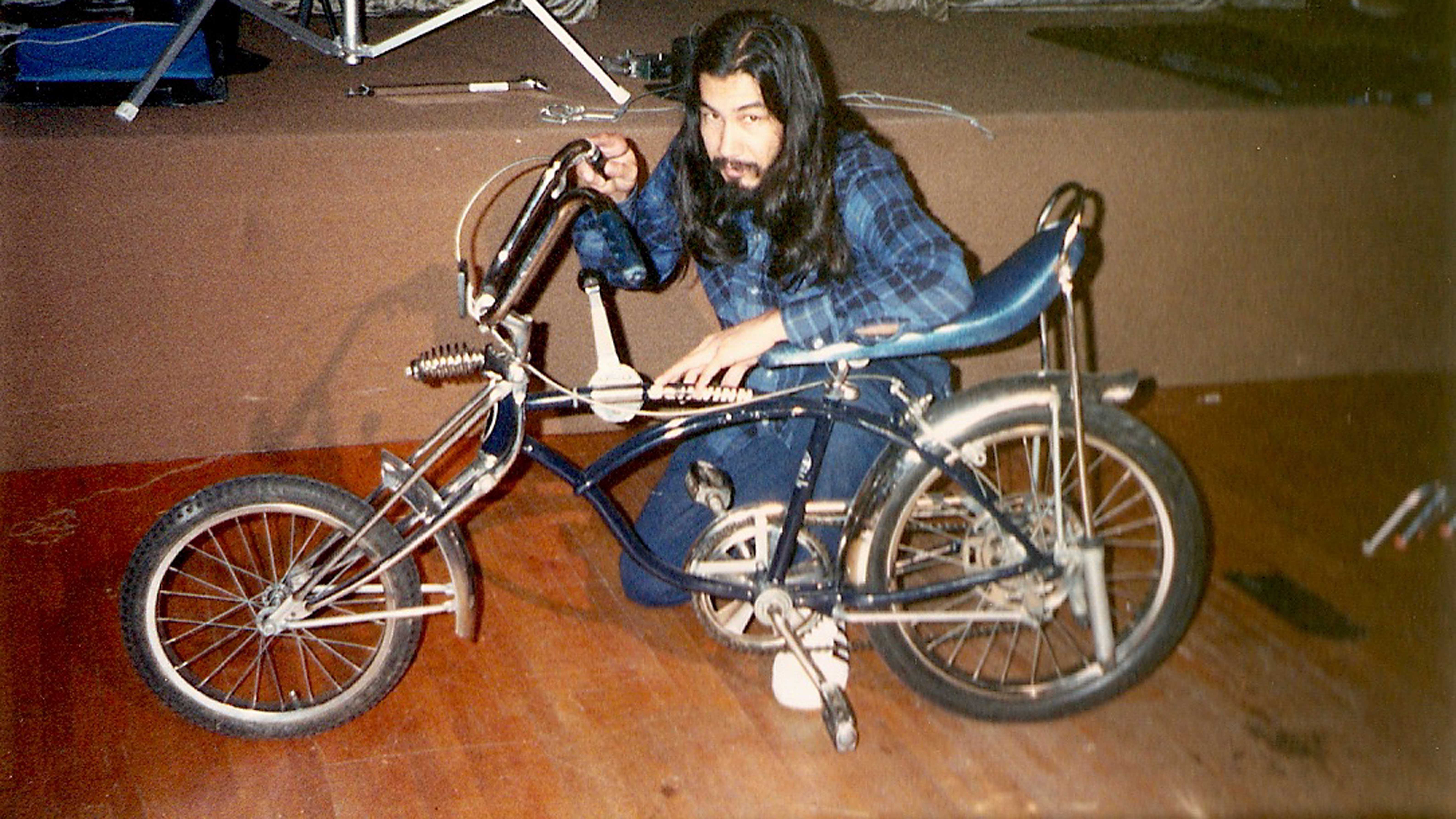Early, early days aside, the Beastie Boys were always a trio—the sight of Adam, Adam, and Mike poised and ready to rhyme is so iconic that it really goes without saying. But if you look not so far in the space behind the Beasties, a fourth presence consistently stands with them on stage: keyboardist Mark Ramos-Nishita, steadfast contributor to every Beastie Boys record from Check Your Head to Hot Sauce Committee, Pt. 2 and the longest-running member of their extended crew. The Detroit-born son of Japanese-Hawaiian and Mexican parents turned a youthful fascination with the machinery and mechanisms of music into a career that’s taken him from building set pieces for Pee-wee’s Playhouse and writing music for traveling theater troupes to covering Elton John at Madison Square Garden.
Occasional visits to Matt Dike and Michael Ross’s Delicious Vinyl label in the early ’90s put him in direct proximity to iconic producers The Dust Brothers and eventual Beasties comrade Mario Caldato Jr. “I’d stop in and smoke pot and do a little recording with them. That’s how I met that whole crew,” he says. But before the trio got to know him as “Keyboard Money Mark,” they knew him as Mark, the carpenter and all-around handyman. As legend has it, Mario C called Nishita after one of the Beasties wrecked the gate of their crash pad, and he happened to bring his keyboard along with him to the job. “Yeah, the whole ‘Cinderella’ thing where I just came and fixed the gate at the Beastie Boys’ rental,” he says with a laugh. “Not true, but, you know—I was actually a carpenter.”
Whatever the case, the group quickly realized that Nishita had the skills to pay several kinds of bills, and they brought him on as a keyboardist and carpenter. He ended up helping to construct both the Beasties’ G-Son Studios in Atwater Village—decking it out with unexpected amenities like a basketball hoop and a skate ramp—and Check Your Head, which they were then in the process of conceiving. From 1992 until the final Beastie Boys performance at Bonnaroo in 2009, Money Mark was there.
“When we were on tour, we were just—we were really super close,” he remembers. “There was nothing to do on those long drives [other] than look at each other and play Yahtzee or cards or watch a VHS tape.”
“The job you do has to include in it some social good.”
You would think that someone who spent decades playing and touring with three of the most legendary rappers in history would find a bit of nostalgic thrill in recounting those days, but Nishita tells his stories like a dad talks about meeting his college roommate. For him, his past has already been laid down; he sees no need to retread his musical origin story. Instead, Money Mark is obsessed with the future—musically, technologically, and socially.
“I feel I have a lotta, lotta, lotta things to do,” he says, and you can almost hear the gears in his head ticking through the possibilities. His latest project? Starting a musical school and setting up a program that provides music therapy for veterans in LA. “The job you do has to include in it some social good,” he says. It’s an idea taken directly from Adam Yauch, and one that carries through Nishita’s life on a daily basis: “We work, but then we also work for a greater good,” he says.
While his most lasting impression on the public is likely that of the keyboard master backing the Beasties, he’s also played with De La Soul, Yeah Yeah Yeahs, and Blackalicious, and he appeared alongside David Byrne playing the songs of William Onyeabor in the Atomic Bomb! Band. Still, working with other groups is really only “25 percent” of what’s up his sleeves nowadays. He spends his time with his two sons dreaming up creations amongst the staggering collection of keyboards in the mad scientist’s lab that is his design studio. If he’s not working on his eighth solo album, he’s inventing instruments or researching new methods for urban farming.
When asked what he sees himself focusing on in the future, Nishita says simply, “Everything…everything.” With Keyboard Money Mark, you know that’s exactly what he means. FL
This article appears in FLOOD 6. You can download or purchase the magazine here.









